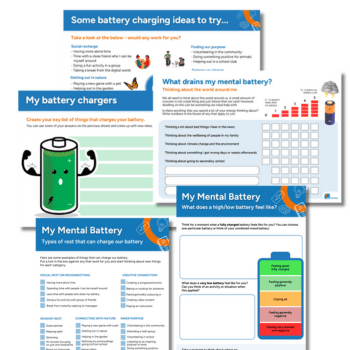Content moderation – How will the Online Safety Bill affect schools?

Mark Bentley considers whether the government’s Online Safety Bill will do enough to allay many schools’ concerns regarding their students’ technology use, both on-site and at home…

- by Mark Bentley

In 2018, The NSPCC launched its Wild West Web campaign. At the time, it stated that “For over a decade, social networks have repeatedly failed to protect children from abuse,” going on to accuse said platforms of being “cavalier when it comes to keeping children safe.”
Some are now hoping that’s about to change, following the publication earlier this year of the government’s Online Safety Bill. But will it?
Transformative change
Education professionals will be used to watching for announcements from the DfE and Ofsted, but over the past few months, it’s been worth also keeping an eye on the press releases concerning online safety that have emerged from the Department for Digital, Media, Culture and Sport. This new legislation will directly affect how we approach protecting children and young people as they use the internet, and in turn, how we support students and young people in our care.
So what’s set to change? The bill’s overall aim is to make activities illegal online if they are illegal offline, and afford the same protections to children and other vulnerable users in the online space that we would expect offline.
I personally believe that the most transformative change we could make to students’ online experience is to restrict them from accessing apps, websites and games intended for over 13s or over 18s. Pornography is the classic example here, which is something the bill will cover with respect to commercial providers and social media platform platforms.
True user identification
Various studies have shown the scale at which online porn is being viewed by students, and the harms occurring as a result. Much of the content in question is extreme in nature, portraying harmful sexual behaviours that are, in effect, being ‘taught’ to our young people via their internet connections.
The bill paves the way for the introduction of mandatory age verification systems to prevent underage users from making unlawful purchases. Not the classic ‘enter your date of birth’ or ‘grab your parent’s credit card’ fields, but true user identification. Some parties have raised privacy concerns in relation to this, but the last few years have seen the development of some great BSI standards on how such systems could be implemented, without requiring individuals to share their personal information with tech companies and verification providers.
That’s important, because a similar approach is expected to be adopted in relation to social media use more widely. This may ultimately lead to more age-appropriate and child-friendly apps and platforms thriving, if they no longer need to compete with large, established platforms nominally aimed at older users, but which are in practice used by large numbers of children.
In time, this may help schools, and indeed parents, promote messaging around the requirement for students to only use age-appropriate sites and platforms.
Parental controls
It’s interesting to note that bill doesn’t specifically cover parental controls. If passed, it will see Ofcom assume independent regulatory oversight of online safety, so I would hope that the codes of conduct we will eventually see from the regulator will cover parental controls and make them more effective. More can certainly be done here, such as having them enabled by default and making them easier to use.
Schools can, and do already perform work in this area, pointing families to the controls already in place across different devices and services. Putting in a little effort before providing children with new devices, or granting them access to new apps and games, definitely pays off in the long run, so it’s worth regularly reminding parents of such settings and other measures they can take.
You can find examples of how to do this, plus tips on how to talk to students about online harms, at parentsafe.lgfl.net.
The bill will never be perfect. It remains to be seen how Ofsted will fare with its implementation and enforcement – but anything that helps keep students safe online should be welcomed, and it’s great to see us ultimately moving in the direction of creating a safer internet.
Mark Bentley is Safeguarding and Cybersecurity Lead at the edtech charity LGfL–The National Grid for Learning; for more information, visit lgfl.net or follow @LGfL










